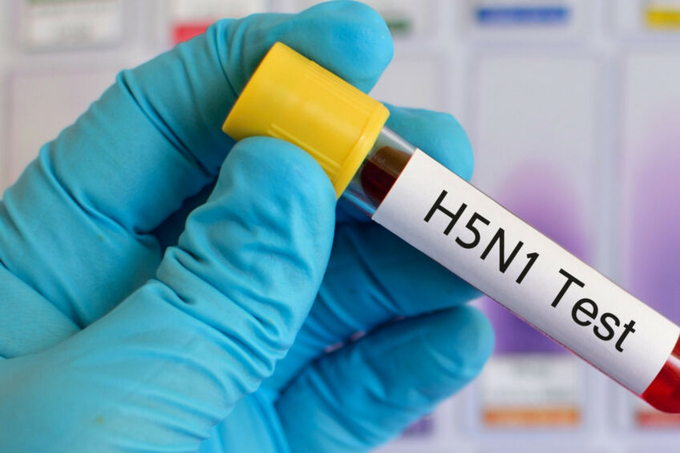December 5, 2025 | 12:27 GMT +7
December 5, 2025 | 12:27 GMT +7
Hotline: 0913.378.918
December 5, 2025 | 12:27 GMT +7
Hotline: 0913.378.918

The H5N1 highly pathogenic avian influenza virus has caused a panzootic affecting all continents except Australia. Photo: Canva.
The H5N1 highly pathogenic avian influenza virus has caused a panzootic affecting all continents except Australia, expanding its host range to several mammalian species.
First detected in milk samples collected from dairy cattle in Kansas and Texas in March 2024, Clade 2.3.4.4b of the H5N1 virus has since been further detected in cattle on 891 farms across 16 states in the US. The strain is thought to be predominantly transmitted through milking and the movement of infected animals or contaminated equipment between farms or states.
Researchers at The Pirbright Institute compared cattle and goat H5N1 viruses with the dominant avian-origin strain in the UK. Focusing on receptor binding, pH fusion, and thermostability, the scientists found all the tested H5N1 viruses showed binding exclusively to avian-like receptors.
Currently bovine H5N1 viruses unlikely to transmit between humans
Writing in Emerging Microbes and Infections, the team describe how an acid/alkali fusion of 5.9 put the H5N1 viruses outside the pH range associated with efficient human airborne transmissibility (pH 5.0 to 5.5).
Professor Munir Iqbal, head of the avian influenza and Newcastle disease group at The Pirbright Institute, said: “We conducted a rapid risk profile of the receptor binding properties and fusion pH of ‘original’ dairy cattle, emerging mutations in dairy cattle, and goat H5N1 viruses. None of the tested viruses exhibited binding to the human receptor analogue (6SLN) and they all retained a high membrane fusion pH ≥5.8, suggesting the currently circulating bovine H5N1 viruses are unlikely to be able to efficient transmit between humans.”
Further mutations
The researchers say it remains to be determined whether further mutations will emerge if the virus continues to infect and spread amongst dairy cattle, with continuing opportunities to adapt to bovines. “Addressing this question will contribute to a better understanding of the H5N1 virus and its adaptation in cattle,” said Professor Iqbal. “Continued surveillance and risk assessment of circulating H5N1 viruses remain a top priority to mitigate their potential impact on public health and the agricultural sector.”
The findings align with several studies examining the receptor binding profiles of the human isolate from Texas dairy farm worker and cattle isolate from Ohio, which consistently showed virus binding to avian-type SA receptors only.
(PW)

(VAN) As of 2025, the ASEAN region has a total of 69 ASEAN Heritage Parks recognized across its 10 member states. Among them, Viet Nam contributes 15 ASEAN Heritage Parks.

(VAN) Yok Don National Park has high biodiversity with numerous endemic plant and animal species, and it is also the only dipterocarp forest ecosystem conservation area in Viet Nam.

(VAN) Viet Nam and Brunei signed two important MOUs on fisheries and IUU, expanding cooperation in agriculture, the environment, and Halal exports, aiming to substantively implement joint projects.

(VAN) The Viet Nam Coconut Association worked with the International Finance Corporation (IFC) and businesses to promote the supply chain, enhance competitiveness, and develop the coconut industry sustainably.
![Hue aims for Net Zero: [2] Pioneering low-emission tourism](https://t.ex-cdn.com/nongnghiepmoitruong.vn/608w/files/huytd/2025/12/04/0633-dulichzero-4-095634_236-161125.jpg)
(VAN) The ancient capital of Hue has developed Net Zero tourism products and models, aiming to reduce carbon emissions and pioneer the establishment of Viet Nam's green tourism destination.

(VAN) C.P. Viet Nam has announced the successful completion of its goal to plant 1.5 million trees during the 2021-2025 period, a key milestone within company's long-term ESG strategy and its roadmap for emission reduction.

(VAN) This is an initiative of MAE aimed at creating a unified coordination mechanism to implement agricultural cooperation programs with developing countries.